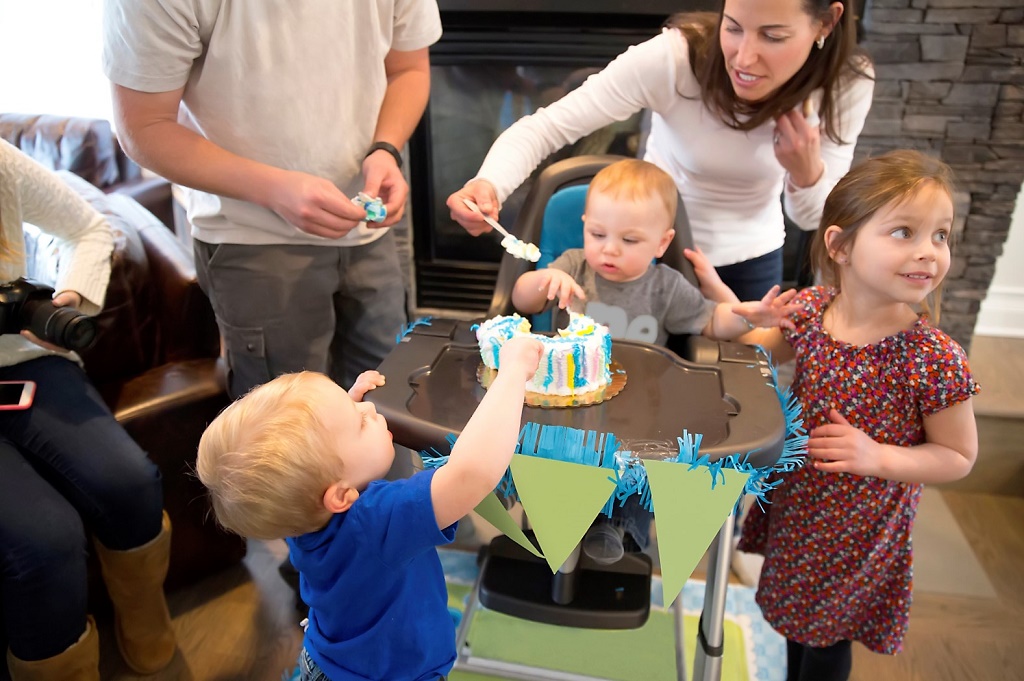When you’re a guest in someone’s home, you can learn a lot about your hosts’ family just by looking around. Lots of family pictures tell you that they value family. A room with a piano and other musical instruments tells you they are musicians.
If someone walked into your home, would they know how much your faith means to you?
Don’t think you need to turn your home into a shrine, with statues and candles at every turn. However, you can use a few creative methods to make your space more of the domestic church our homes are meant to be as Catholics. Here are just some ideas:
- Celebrate baptism days. This doesn’t have to be anything fancy; simply enjoy a good meal with a nice dessert. Of course, use this opportunity to pull out your child’s baptismal candle and the white garment given to them on the day of their baptism. Talk about what these mean, and how your child can live out his/her baptismal promises. If your child’s godparents live close enough, invite them to the celebration.
- Make sure the liturgical year is celebrated at home. Even if you’re not crafty or an artist, you can still enjoy making memories and reinforcing the faith with your kids by making Lenten paper chains, lighting Advent candles, and setting up a Nativity scene. Even the youngest members of the family can join in fun, simple ways to bring your Catholic faith home. It also reinforces that our faith is not just for church on Sunday, but the way we live every day.
- Buy a holy water font and fill it with holy water. Many people are a bit taken back by this, but indeed, it is perfectly acceptable for us to have holy water fonts in our home. You can put one by the entrance you and your family use the most, blessing yourselves as you come and go. Or consider putting one in every family member’s bedroom. It re-connects us with our baptism and is another wonderful way to reinforce the domestic church. (By the way, if you’re not sure where/how to get holy water, ask your pastor. Most churches either have a dispenser in the church or allow you to get water from the baptismal font.)
- Use Catholic art. Perhaps a small statue or a picture of your child’s patron saint in his/her bedroom would be a good place to begin. You can also create a family altar. It doesn’t require a lot of money, but it’s a terrific reminder that we have “friends in high places” who are eager and willing to pray for us.
- Make sure you have at least one crucifix prominently displayed in your home. This isn’t simply a way to display your faith, but a way to remind us constantly of Christ’s greatest gift to us. In addition, we know every time we look at the crucifix that we are called to suffer in communion with Him, sacrificing in a small way every moment of every day in imitations of Christ’s great sacrifice.
Oh, and one more thing: go to Mass! Even if you can only go on Sundays, the Mass is the single most important prayer of the Church and the family. Yes, sometimes it’s hard to get there: kids are wiggly or grouchy, we want to sleep late, we are on the road for a long weekend. However, there is not any excuse (other than great sickness or caring for the someone who is ill) that should keep us from Mass. A healthy family spiritual life always begins and ends with the Mass.
As we look to the end of this Year of Mercy, it is so important that we remember our homes should be places of comfort, mercy and forgiveness.
In our homes, in our neighborhoods, in our schools, in our workplaces – we can be bearers of God’s mercy. Furthermore, in this jubilee year, we are challenged to break out of our routine lives and go the extra mile by actively seeking out those who are in need of the grace and peace of Jesus’ merciful touch. The notion of “jubilee” is an invitation to be “extravagant” ambassadors of mercy: merciful as our heavenly Father is merciful – without boundaries, without constraints, with our hearts full of solidarity for all humanity.
So, then, as we become agents and witnesses to mercy, we will be able, as a family of faith, to recreate our local parishes into “oases of mercy” for the life of the world around us. In a world too often experienced as a barren desert, bereft of true mercy and compassion, we will provide an oasis of healing and tenderness, because we ourselves have been touched and changed by mercy.
With just a few simple and on-going changes to our homes, we can ensure that we are truly living our faith whether we are at home, at church, or out in the world. “You are the light of the world,” Christ teaches us, “… your light must shine before others, that they may see your good deeds and glorify your heavenly Father.”




